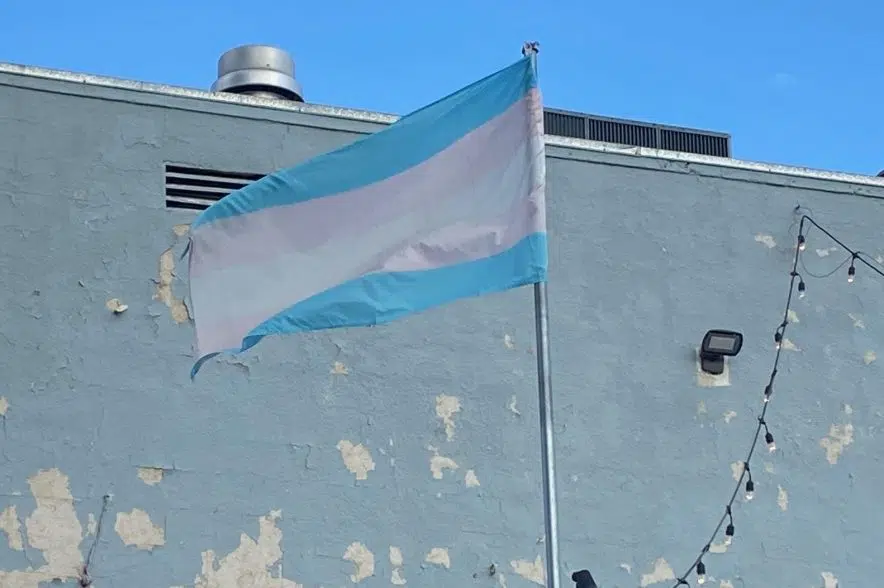Members of the 2SLGBTQIA+ community described themselves as “shocked,” “appalled” and “heartbroken” when they found out about the changes the provincial government is making in Saskatchewan schools.
Education Minister Dustin Duncan announced Tuesday that teachers will now need permission from parents before a child under 16 can change their name or pronouns, in reference to a gender identity change, in the school environment.
Ariana Giroux is a queer and trans woman and the executive director of UR Pride at the University of Regina.
She said some of the queer activism community had been worried they could see something like this in the next year or two.
“But to have it happen out of nowhere with no community consultation and absolutely no ahead of time notice, not only am I shocked, but I have just watched the ripples of shock and confusion and fear running through the queer community and my own social networks,” Giroux said Wednesday.
For kids going back to school in a couple of week, she believes there’s going to be a lot of confusion and fear around the change.
“If we’re to listen to what the students are saying, then it’s clear to see that this move is going to make them afraid, it’s going to make school hard to be at, it’s going to make school a place where they have to worry about their safety and hiding things about themselves before they have to worry about their homework and their grades and actually learning the skills they’re going to need,” explained Giroux.
Giroux said she had come to terms with herself as a queer and trans person in early high school but she didn’t come from a supportive home. She said the only way she got through school was because she had a couple of teachers who created a safe haven.
“For me, it was being able to go back to the choir room and hang out with my fellow choir nerds who knew I was queer and supported me in that, and having a teacher that would back me up and stand up for me when time came to,” she said.
“That was incredibly important to my ability to focus on school. That was incredibly important to my safety (and) to my well-being all throughout high school.”
In his explanations Tuesday, Duncan couldn’t say whether any transgender people were consulted on the policy before it was implemented. Giroux called that shocking.
“It seems to me grossly inadequate that you wouldn’t consult the community you are affecting directly,” she said.
Giroux said the move needs to be viewed in the context of what’s happening around the world. She pointed to the United States, where she said more than 560 anti-trans and anti-queer bills have been introduced this year alone.
Between the lack of consultation and this happening when there’s a push against the trans community nationally and internationally, Giroux said this tells her that move was politically motivated.
“The Sask. Party is trying to show force, they’re trying to shore up their voters and right now, if you want to mobilize the religious right or however you want to put it, you target trans kids – it has been shown to work,” said Giroux.
When Duncan presented and answered questions on the new policies, he said several times he was talking about children here “not mini adults.” However, Giroux said children have rights, too.
“This idea of ‘Children don’t know what they want. Children don’t know what they need’ is anti-child and it puts kids at risk,” she said.
“We can’t strip children of their rights so that we empower parents. That, to me, is a red flag and only empowers abusers.”
Giroux said there are people already preparing to fight against these moves, saying a gay-straight alliance at a Regina high school has started a petition.
She encouraged people who don’t agree with the change to reach out to their school boards and their MLAs to let them know.
“There’s never a better time than right now to step up and put yourself forward and say, ‘I support trans kids, and I want trans kids to live,’ ” said Giroux.
In Saskatoon, at the University of Saskatchewan’s Pride Centre, Kseniah Pidskalny was frustrated hearing the news.
“It just seems to be this ongoing attack on the trans community based on these just not real (ideas) for what actually occurs within the community,” she said.
“It was frustrating and heartbreaking to hear because I just know how terribly it’ll affect children as well as teachers that support those students in the community as well.”
Pidskalny is a co-ordinator with the centre and said she works with queer students on campus as well as youth just out of high school.
Pidskalny said kids are mostly between school and their home and there is a whole lot of room for them to create a community outside of that. She said if kids don’t have a supportive home, then school could be a safe place for them to explore their identity, but that appears to have been taken away.
She’s looked into the numbers and done a lot of research on the subject, and Pidskalny said trans youth have higher rates of death by suicide. But that can change.
“Those rates of suicide in youth specifically actually drop — they are at rates of about 26 per cent and they drop to about 11 per cent — when their proper names and pronouns are used,” she explained.
“That’s such a simple thing to do to just make kids and children feel like they are supported and safe and they have a community that they can rely on, and just taking that away from them is so so dangerous.”
Pidskalny goes by she/her but also they/them, and she said if these policies had been in place when she was in school, it would have furthered the idea that she didn’t belong. But she said it also sends a message to kids.
“Even with kids that aren’t trans or cis, they’re furthering this idea that there is another, there is someone that doesn’t belong, there is someone that requires permission to be themselves, and that just is going to put them in this other box even farther away,” said Pidskalny.
For those who are worried or have questions, Pidskalny said the Pride Centre at the U of S has resources in person and online, including some for parents. She said she wants trans youth to know there are still spaces for them.
“Trans people aren’t going anywhere, I continue to see them exploring and becoming themselves in university and I just want those kids to know that there are spaces for them as long as they can make it there,” said Pidskalny.
Reaction from parents
Tongues have been wagging across the province since the government made the policy announcement Tuesday.
Brooke called in to the Gormley show on Wednesday morning. He has a transgender child and said the situation is being framed as a parental rights issue when it should be framed as a parental responsibility issue.
“This group of kids is proportionately at risk because of unsupportive homes, in some cases, and it’s up to the education system to at least look out and protect those kids,” he explained.
He said there are no two cases, kids or families alike but kids have been able to find supports in schools.
“Things need to work through before the heavy hand of the government comes down and disrupts that organic process that is taking place,” said Brooke.
Scott is a teacher and he also called in to Gormley. He said the new policy has some merits.
“But I think it’s a little frustrating at times when these new policies are just dropped onto school divisions and the teachers and schools without much consultation,” said Scott.
He said a lot of teachers try to involve parents as much as possible already but this policy is making the situation seem too clear cut, and it’s bringing rigidity into how the schools deal with things.
Some Gormley callers agreed with the policy, like Kelly.
“I think the parents have the right to know what’s going on with their kid,” the Regina man said.
“I think parents are going to support their kids through that and they’re going to accept them and love them no matter what. I mean, I certainly would, and so I don’t think we should be treating all parents like they’re going to abuse their kids.”
Meanwhile, Melissa was a high school counsellor for years. She told Gormley the policy change wasn’t the right thing to do because it’s too broad.
“I don’t understand why there’s this need to inform parents if there’s no harm … If there is any harm to the student or the child with respect to this, then call the parents. But if there is no harm to the student, why bother?” said Melissa.







